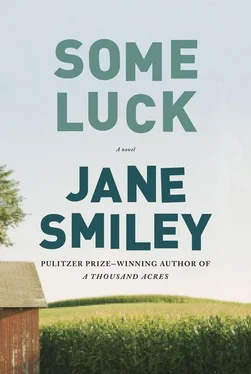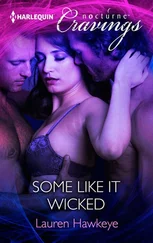The letter was addressed to both him and Rosanna, and Rosanna had already read it three times.
Although I was not quite sure how your son Francis would fit in here, he has done a wonderful job, not only in his classes, but in participating in extracurricular activities. Surely you have heard that he sang at both the Spring Into Action Student Show last year (I believe it was a rendition of “I Got Rhythm”), and the Autumn Golden Glee Show (“Ain’t Misbehavin’ ”). I was especially impressed this fall, when he asked one of the other boys, a competitive swimmer, to teach him to swim, and the two boys went over to Lake Michigan every day well into late October, at least two weeks after I would have considered the water too cold, so that he could master the crawl and the backstroke. I bring this up only to demonstrate that your son is remarkable for the determination that he brings to every activity. Although last spring I was not certain that he was spending time with the best and most morally upright of our boys, my fears in that regard have been put to rest.
In short, I do feel that it would be a betrayal of both Francis’s evident intelligence and his industry to prevent him from attaining a higher education. I am sure he could excel in any field, and would bring great pride to his family. From the few things he has told me, I know that before he came to Chicago, he was an eager student, and that he was also enterprising in using his hunting skills to earn money.
It may be that you feel that seventeen is too young to embark upon a college education, but I do think that if the institution of higher learning were carefully chosen, Francis would find himself in upstanding and respectable company, and your worries could be laid to rest.
Please think about what I’ve said, and if there is any way that I can lend a hand to the realization of Francis’s ambitions, I am entirely ready to do so.
The whole prospect bothered Walter, but not in any way that he could express. It was not, as Rosanna suggested, simple narrow-mindedness on his part. It was not that he felt that the world would damage or hurt Frankie in any way, it was much more that there were plenty of things out in the world that Frankie would learn about, and that he would then have no scruples at all.
Walter lay back on the bed and looked out the window. Blue sky. A year ago, this very window was shrouded in snow and ice, and they had survived. Here it was almost March. They had had a decent amount of snow, and the usual amount of wind, and some sleet and hail. But everything came and went rather than staying and staying. Maybe it was an omen for the spring and the summer. His corn crop in the fall hadn’t been the worst — ten bushels an acre better than two years ago — but still not what it was in the twenties. Maybe that was an omen for this year, too. What did Walter want Frankie to do? Rosanna told him that he had written her and said that Eloise suggested he go off to Spain and fight for the Loyalist cause, but Walter thought he was putting Rosanna on.
Walter stared up at the ceiling. One thing was for sure, the boy who had left a year ago was not the man who came home for Christmas — taller than Walter, shoulders like a bull, but lean. Blond as a girl, blond as Jean Harlow, and with those blue eyes. He had learned to walk and stand like a city boy, but one who knew his way around and could break into a run if the cops were on his tail. This thought made Walter smile. Well, maybe it was true what Rosanna said, that Walter saw only the bad side of Frankie and always had. “He was always tough, Rosanna. I knew that, didn’t I?”
“You think that’s a bad thing! In this world, those are the ones who survive.”
He didn’t think toughness was a bad thing. He had cultivated it. However, it was easier to see your kid for what he was when you saw him at a distance, and Walter was afraid of what else Frankie was — ruthless, maybe. Thinking that, he looked around the room, wondering if there was a hidden stash of something, and what that would be. Cigarettes? Whiskey? Girlie pictures? Even money? He had always known that, in the hardest times, Joey was giving him all his money, while Frank was holding some back.
Walter stood up. To be honest, was that bad in these times? Take Rolf, again — he was now their example for everything that could go wrong. Granny Mary and Grandpa Otto and Opa and Oma never asked a thing from Rolf that he didn’t give them, with all apparent willingness. In the end, it was too much — that’s how Walter saw it. And he couldn’t think of Rolf now without thinking of himself falling into the well — something he still hadn’t told Rosanna about. Maybe the measure of what, over the years, he had kept back for himself was the measure of what saved him, what propelled his body of its own volition to the front of the well and out. The joke was that if he’d killed himself he would have missed the worst year of his life, and still he was glad that he hadn’t killed himself.
He closed the door of Joey’s room behind him, and just then he could see Lillian and Henry step onto the front porch. He could hear them, too. Henry said, “Let’s go look at the lambs.”
And Lillian said, “What did you name yours?”
Henry said, “Duke.”
Walter opened the door.
IT WAS LILLIAN who arranged it with Miss Perkins. Miss Perkins was their teacher — this was her second year. She was not a young woman; she had taught in lots of schools, including one in New Mexico, which Lillian thought was very exotic, because Miss Perkins had two potted cactuses on her desk, and sometimes she talked in Spanish to them. Miss Perkins had come home to live with her mother, who was very old and demented. They lived in Denby. For a while there were only eight students in the whole school — Joey because he was not quite ready for the high school (and didn’t want to go there anyway, he told Lillian, because he would be bullied for sure); another boy, who was twelve, Maxwell; herself and Jane; a boy named Luther, who was ten; Roger King, nine; Lois, who was six, almost seven; and Jane’s sister Lucy, who was also six. It turned out that Miss Perkins drove her car to school, and she got into the habit of picking up Lois and Lillian, because they lived on the way (Joey walked or ran, as he always had). One day after Christmas, Miss Perkins saw Henry waving like mad in the front window as they left, and asked how old he was. Lillian said, “He’s four, but he can read and write the alphabet, and in my opinion, he should do what he wants and come to school with us.”
Miss Perkins let him come on the condition that he sit at a desk and behave himself, and he was able to do that if Lillian gave him either a book or some paper and some crayons, and so he started coming to school. Walter didn’t mind because Henry was afraid of the animals, intensely talkative, and worthless on a farm; and Rosanna didn’t mind because he cried for Lillian every day anyway. Now he was in the habit of going to school. When Mama asked Miss Perkins how it was going, she said, “Well, he’s got the biggest ears! My land, a child can read something aloud or make a remark from across the schoolroom, and Henry offers his two cents if he finds it at all interesting. At least he doesn’t correct their arithmetic sums. He’s a very forward child.”
Mama said, “You didn’t know our oldest boy, Frank, but he is the same way. It now looks as though he will go to the University of Chicago!”
“My goodness,” said Miss Perkins. “Why not Iowa State? You get everything you could want there.”
Lillian, who was standing by the front door of the car, helping Lois get out, said, “I’m going to take Lois home.”
The two ladies kept talking, and Lillian took Lois’s hand. They walked down the edge of the road, which was clean of snow — in fact, there was only snow in the ditches anymore, and the sun was almost warm. Lois unbuttoned her coat.
Читать дальше












